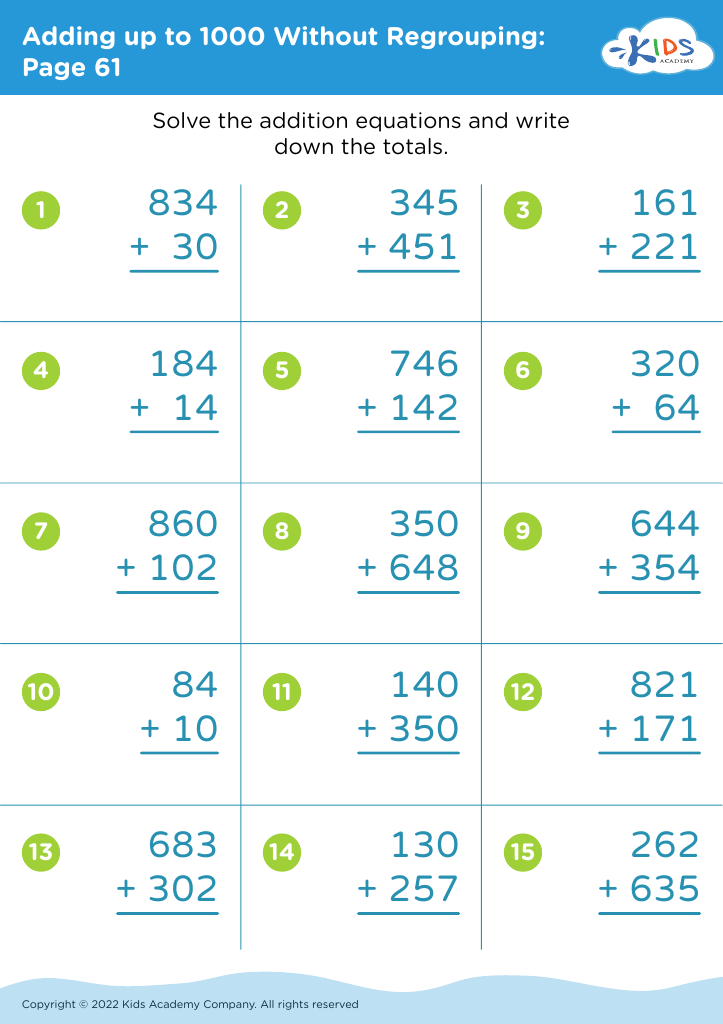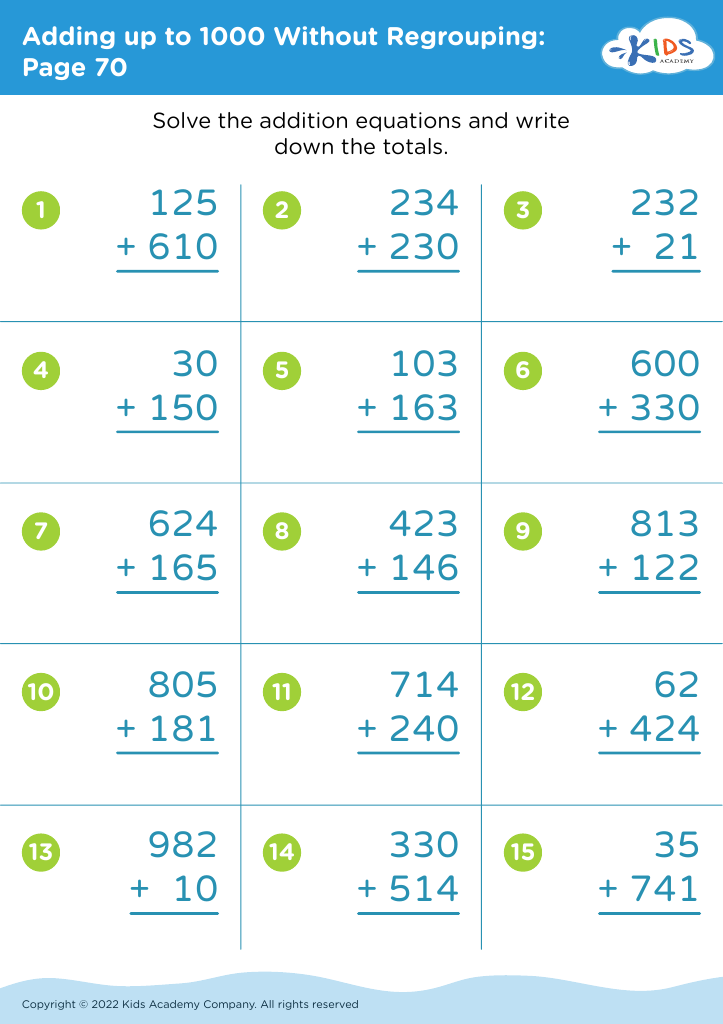Basic Addition Adding up to 1000 Without Regrouping Worksheets for 9-Year-Olds
4 filtered results
-
From - To
Discover a fun and effective way to reinforce essential math skills with our "Basic Addition Adding up to 1000 Without Regrouping Worksheets" designed for 9-year-olds. Our carefully curated worksheets provide a solid foundation for mastering addition without the complexity of regrouping. Each printable is designed to engage young learners, ensuring they gain confidence in their abilities while enhancing their arithmetic competence. Ideal for classroom or at-home practice, these resources pave the way for academic success, seamlessly integrating educational content with engaging activities. Explore our worksheets today and give your child the tools to succeed in math.
Parents or teachers should care about ensuring 9-year-olds master basic addition up to 1000 without regrouping because it lays a crucial foundation for further mathematical concepts and everyday life skills. At this age, children are developing logical thinking and problem-solving skills, and proficiency in basic arithmetic bolsters cognitive development. Mastery of adding up to 1000 helps solidify their understanding of place value, which is essential for more advanced operations like multiplication, division, and eventually algebra.
Furthermore, mathematical confidence at an early age can foster a positive attitude toward the subject, reducing anxiety and increasing willingness to tackle complex problems in the future. Practical applications of this skill are numerous; whether it's estimating costs while shopping, splitting a bill, or managing their own money, a strong grasp of basic addition enhances numerical literacy. Additionally, consistent practice with these problems encourages attention to detail and accuracy, vital traits both in and out of the classroom.
Teachers and parents also recognize that foundational skills impact academic performance across subjects. Math processes align with logical and methodical thinking patterns seen in subjects like science and technology, fostering a versatile and comprehensive skill set in young students. Ensuring that children excel in basic addition sets them on a path to success across the curriculum.


















